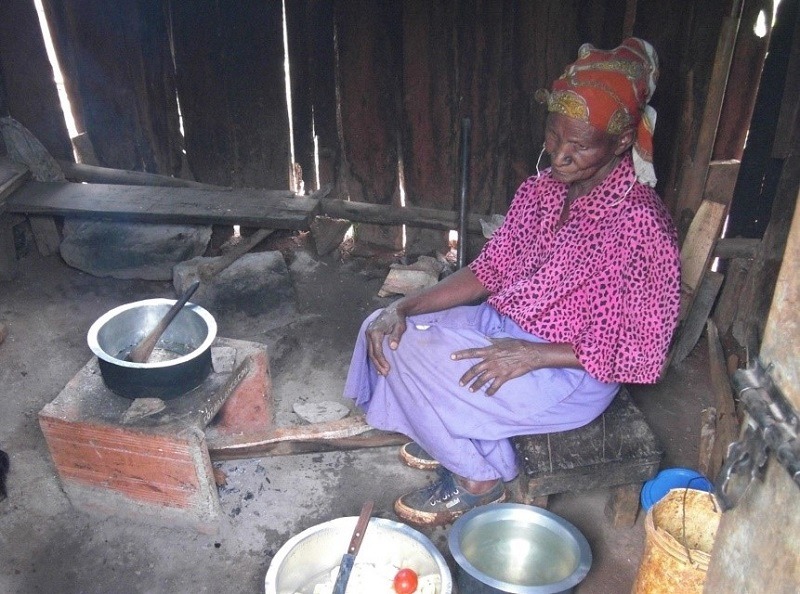
Canon Medical Systems UK’s has launched its carbon offset initiative in a bid to help save lives and reduce hospital costs through using entirely carbon neutral products.
As the climate changes, health risks heighten as higher temperatures increase the frequency and intensity of heat waves.
According to data from the Office for National Statistics, there were just under 28,000 deaths registered in England and Wales as a result of these phenomena between 23 June to 13 July last year.
The World Health Organization also claims energy efficient devices and practices have the potential to generate considerable savings for health centres, reduce environmental hazards and protect natural resources.
Canon Medical Systems UK’s CarbonZero project aims to address all these issues through its range of products, which all operate at zero cost to the environment.
Mark Hitchman, managing director of Canon Medical Systems UK, said: “Climate change is a real and ready threat.
“Changing weather patterns don’t just affect those in developing nations who are far more sensitive to threats of droughts and flooding to food chain resilience and prolonged infectious disease seasons of malaria and dengue.
“The impact will be here in the western world too. Health conditions that are exacerbated by temperature increases, such as cardiovascular, respiratory and renal diseases, will rise, particularly in patient demographics such as the elderly, young and pregnant women.
“This will have a socioeconomic and financial impact on all developed nations.”

What are the dangerous health impacts caused by climate change?
Healthcare systems as a whole are carbon-intensive, therefore contributing to climate change.
In turn, health effects from climate change will continue to add pressure to health systems through an increase in the overall burden of disease.
Sustainability-oriented actions in service delivery can contribute to attaining and restoring both health and environmental benefits.
They also encourage environmental benefits by reducing air pollution emissions generated by fossil fuel electricity production.
Moreover, health equity benefits arise from the availability of technology that can be used in developing settings where access to energy is not always reliable.
Mr Hitchman believes, in developing countries, innovation in medical equipment is particularly important to reach and be powered reliably in outlying rural locations.
He said: “Mobile, robust and battery backed-up X-ray systems are already in action around the world, deployed by Canon Medical Systems UK.

After achieving all four sustainable development goals through its CarbonZero project, the Canon Medical Systems UK has been recognised with partner status from the United Nations’ (UN) Division for Sustainable Development Goals (SDGs).
Dubbed the only UK medical equipment provider to be carbon neutral, the healthcare firm has been working with carbon projects developer CO2balance since 2014.
Their collaboration supported projects that offset the CO2 emissions caused through production and distribution of its machines, as well as reducing the company’s corporate carbon footprint.
How did Canon Medical System UK’s four SDGs reduce C02 emissions?
Canon Medical Systems UK’s recent energy efficiency innovation in medical imaging includes its latest-generation CT scanner.
It recovers energy when the gantry decelerates from spinning thus drawing less electricity, plus advances of standby functionality, which further reduces emissions “and energy costs in the health estate.”
The 17 SDGs – also known as the Global Goals – of the 2030 Agenda for Sustainable Development is part of the UN Department of Economic and Social Affairs and calls for private partnerships to address global challenges, such as access to medicines.
Mr Hitchman said: “Canon Medical Systems UK’s quest to work in line with the UN’s 2030 Agenda for Sustainable Development cascades from our global corporate philosophy ‘Kyosei’ which means living and working together for the common good.
“Of the 17 SDG’s, we have achieved not only four of them but are well on track to complete several more though additional initiatives here and abroad.”
Canon Medical Systems UK achieved all four SDGs which include: (3) Good Health and Well-being (5), Gender Equality (6), Clean Water And Sanitation and (13) Climate Action.
“These are a shared blueprint for peace and prosperity for people and the planet, now and into the future,” added Mr Hitchman.
“Sustainable Development Goal number 13 is Climate Action.
“Canon Medical Systems UK has fulfilled this goal by taking urgent action to combat climate change and its impacts via its carbon offset initiative.
“This is part of our Canon Medical Systems UK 2020 Vision that we set back in 2016 to make a difference to the planet and healthcare in a commercially conscious way.”
The NHS is one of the UK’s most energy-intensive organisations and the world’s largest healthcare system, spending more than £750m on energy costs each year.
The latest report published by Sustainable Development Unit regarding NHS carbon footprint was published in January 2016 and is based on 2015 data, showing the NHS carbon footprint in England is 22.8 million tonnes of carbon dioxide.
Mr Hitchman said: “The UK’s NHS is one of the biggest consumers of energy at 6.3% of England’s total carbon emissions.
“It has set its own targets to reduce carbon emissions and manage use of natural resources.
“Indeed some NHS Trusts are appointing ‘Sustainable Officers’ to report and steer the meeting of targets and selection of appropriate suppliers.”

To produce a carbon neutral medical system, Canon Medical Systems UK ensures that each time a UK hospital or clinic purchases a piece of imaging equipment, the total amount of CO2 is systematically calculated throughout the whole process.
Mr Hitchman explained: “This means that global CO2 has been saved in countries such as Uganda or Kenya by the provision of new cooking stoves that burn less wood to reduce emissions, or the repairs to broken water bore holes that then reduce the need to boil on wood stoves to purify the water.”
“A Canon Medical Systems UK 1.5T MRI system, for example, has a carbon offset footprint of 226.78 tonnes of CO2 which then helps 245 people in Kenya and Uganda via providing cooking stoves and fixing water borehole projects to improve overall health and quality of living standards.
“Over the past four years, we have offset a total of 27,476 tonnes of CO2 emissions from medical system sales and our own company-wide sustainability initiatives for example, fleet miles travelled, hotel usage and energy consumption in our office locations.”
Service innovations in recent years at Canon Medical Systems UK are also changing the shape of carbon footprints.
He added: “We achieve more than 50% of first-time fixes of our medical equipment at customer locations using remote diagnostic systems.
“This means our engineers can fix MRI or CT scanners for example, without needing to drive to the hospital locations, saving time, mileage and CO2 emissions.
“We’re looking at raising this figure to nearer 75% fixes using remote software and technology interventions in the near future.”






